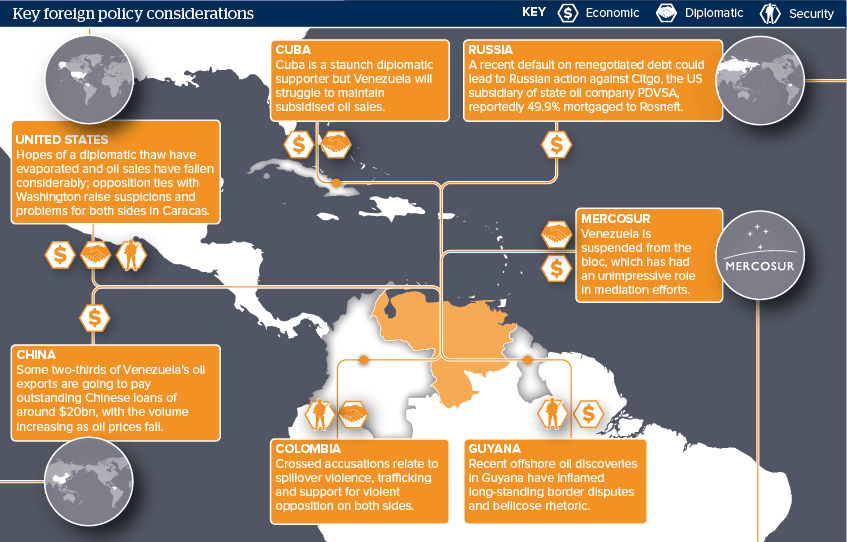Venezuelan isolation raises a range of grave risks
The country has rowed back from a more activist global role since the death of President Hugo Chavez
Source: Oxford Analytica
Outlook
Political and economic woes have reduced Venezuela’s global role from the days when Chavez sought alliances with Iran, Libya and Syria, made arms deals with Russia and put in place the PetroCaribe scheme under which Venezuela sold oil at concessional prices to regional allies.
Immersed in its own crisis, Venezuela’s foreign policy now focusses on seeking loans and averting default; relations with China and Russia revolve increasingly around financing deals, to be paid for by mortgaging long-term oil output.
No longer able to dispense largesse and surrounded by less ideologically compatible governments, Venezuela’s growing isolation reduces prospects for serious regional mediation that could palliate its crisis.
Impacts
- Regional neighbours are increasingly divided over Venezuela, as shown by the Organization of American States’ failure to act effectively.
- Unpredictable US foreign policy under President Donald Trump could increase fears of a new and unconstructive intervention in Venezuela.
- Insecurity and dysfunctional institutions facilitate cross-border crime and other incursions that affect neighbours’ security.
- If Rosneft were to take action over its Citgo stake, it could give a Russian firm control over another US-based downstream company.
See also
- Prospects for Venezuela to end-2017 - Jun 7, 2017
- More graphic analysis
